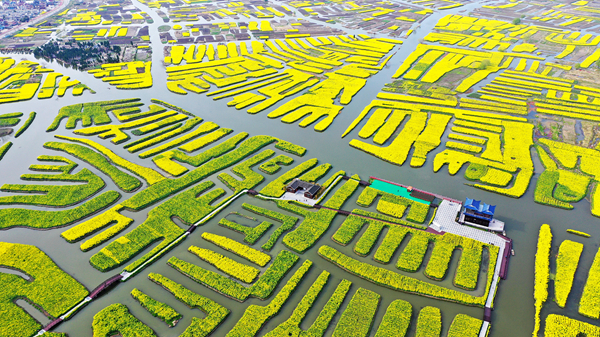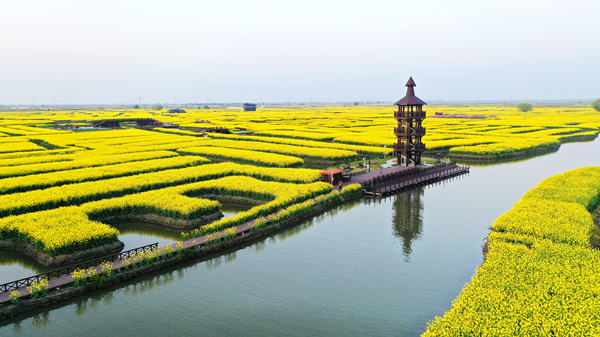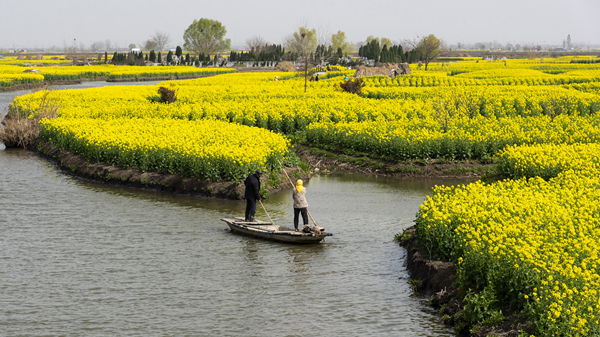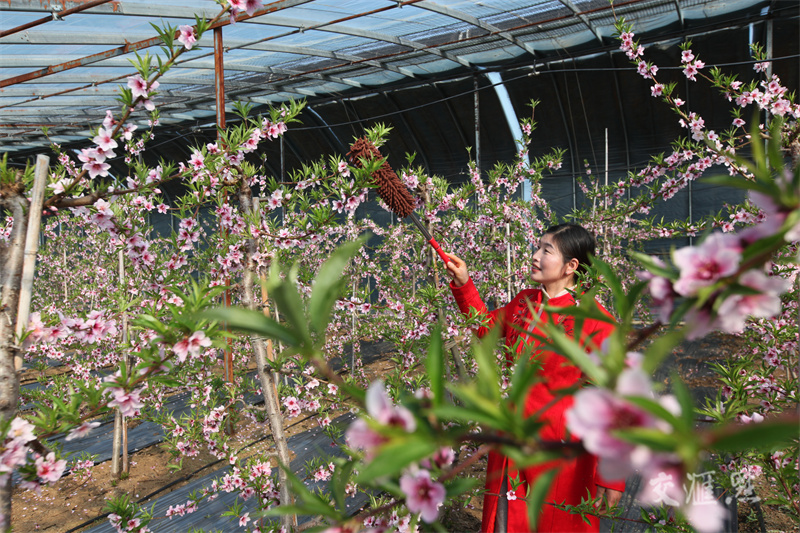
Chinese National Committee on Irrigation and Drainage has included the Duotian Agrosystem of Xinghua City, Jiangsu Province on its nomination list for the World Heritage Irrigation Structures (WHIS) recognition by the International Commission on Irrigation and Drainage (ICID) this year.
The WHIS designation, established by the ICID in 2014, aims to protect and promote the historical value of irrigation projects. China now has 26 projects on the WHIS list.
In Northern Song Dynasty (960-1127), people in Xinghua began to build wooden structure to support field and raised mud into small stacks. The practice continued in the Ming (1368-1644) and Qing (1644-1911) dynasties to fight against floods.


(CFP Photo)
The agrosystem ensures water supply to an area of 52.88 square kilometers through a network of embankments, irrigation and drainage channels, and water gates. This traditional farming practice has played the functions of drainage, irrigation, flood control, shipping, soil and water conservation, and also provided habitats for the wild life.
In 2018, Xinghua started the preparation for the WHIS recognition. The city has completed a survey of the agrosystem heritage, released a conservation and management plan, and also built a museum to introduce the science and culture of the unique water-land utilization.




















